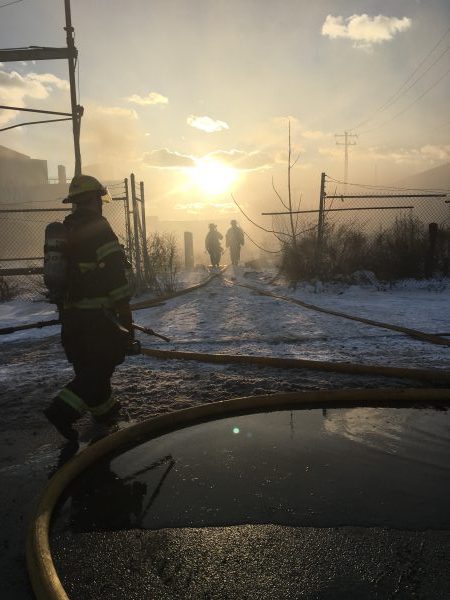Author: IAFF Staff
March 14, 2018
As a fire fighter or paramedic struggling with addiction or mental health issues, you might think that asking for help is a sign of weakness — proof that you can’t handle the difficulties of your job. After all, you’re used to being the one who helps others, so why would you need to ask for it for yourself?
Because your well-being depends on it.
In the end, the only person who can fix your substance use or mental health challenges is you. Sure, you’ll need help from compassionate professionals and a supportive network of family, friends and colleagues but recovery begins when you recognize that it starts and ends with you.

You can take ownership of your well-being and happiness by following three steps:
- Acknowledge Your Struggle. Before you can begin to heal, you must acknowledge that a problem exists. Maybe the memories of a bad call are still so fresh that it feels like it happened yesterday, and keep you awake at night. Maybe the stressors of the job have piled up, and you drink every night to push them away. Maybe you’ve withdrawn from the people you love, or have been estranged from them for so long that you don’t know how to make things right.
Isolation, personality changes, mood swings, flashbacks, nightmares, emotional numbness, and excessive substance use could all be signs that something’s wrong. Whether you have a substance use disorder or a mental health condition, recognizing your problem is the first step to getting better.
- Seek Help Because You Want To. You might think that your problem will go away in time without professional intervention — that you can stop using substances whenever you want, or can heal from trauma on your own. But the truth is that the longer you wait to get help, the longer you’ll suffer. You owe it to yourself to get the treatment you need.The decision to pursue recovery is yours and yours alone. No one can force you to get help for an addiction or mental illness. Even if you’re mandated to seek treatment by your loved one, you’ll never practice the skills you’ve learned unless you choose to.This is part of the reason so many people start using drugs or drinking again after rehab, or fall back into old habits after a mental health program. You’re the only person who can decide how you to want to live your life.
- Take Care of Yourself. Recovery from trauma or addiction doesn’t stop after you complete a treatment program. Maintaining emotional wellness is the work of a lifetime. If you struggle with a substance use disorder, you can reaffirm your commitment to sobriety through programs such as Alcoholics Anonymous (AA), Narcotics Anonymous (NA) and SMART Recovery. If you have a chronic mental health condition, such as depression or anxiety, regularly seeing a therapist or taking medication can help you work through and manage your symptoms.Because you may witness traumatic events once you return to work as a fire fighter or paramedic, finding ways to process your emotions with co-workers, loved ones or trained professionals can allow you to experience grief in a healthy way.
Maintaining a work-life balance can also help keep you level headed. Exercising regularly, spending time with the people you love and finding hobbies you enjoy outside of the firehouse improve your physical health, mental well-being and overall perspective.
If you’re ready to take the first step toward a better life, the IAFF Center of Excellence can help. Designed specifically for IAFF members, the facility promotes reflection and healing through evidence-based treatments, individual therapy and group sessions. A call to the Center is completely confidential, and requires no commitment to treatment. Reach out to a representative today to learn more.
